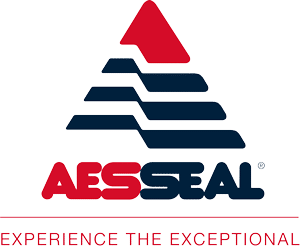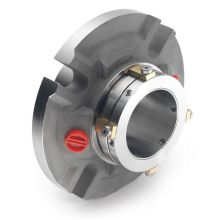
Mechanical seals from AES include: Cartridge, single spring, component, labyrinth, magnetic labyrinth and API 682 shaft sealing devices.
The style of seals include: Single, double, tandem, back-to-back, bearing protection.
Packing and ancillary equipment includes: Barrier tanks, barrier fluid, finned tubing, PumpPac, water management systems, gas panels and additional cooling.
Mechanical Seals Contact
DANE WINTER
Mechanical Seal Specialist
(800) 362-3222

Cartridge Mechanical Seals
We offer a range of standard inventory cartridge mechanical seals, including single and double mechanical seals to suit even the most demanding application and thanks to our modular design system we offer them with the best on-time delivery performance in the industry.
Component Seals
Our modular seal technology – which can be quickly configured in 10 million permutations, enough to meet 90% of engineering applications.
Bearing Protection
Save your bearings and improve your reliability with our bearing isolation / protection range.
Seal Support Systems
Research has proven that the biggest mechanical preventative of mechanical seal failure is the use of effective Seal Support Systems.
Not only do we handle all styles of seals and environmental controls, we can also repair, modify and even build what you need when standard products don’t do the job. We repair all brands in-house.
We have developed a very powerful root-cause failure analysis capability to identify what is really going on in your pumps. We “follow the evidence” like CSI. From legitimate and reliable analysis, we can identify the cause or causes of premature failure, recommend the solution and provide it without long lead times or ridiculous prices.
We just don't know of another company that can do so much for you in the murky world of mechanical seals. With our training programs, we can even make the murkiness go away.
The family of shaft seals known as mechanical seals is the most advanced type of seal used in the mixing industry. They can handle the highest pressures, maintain nearly leak-free operation, and require minimum maintenance if installed and operated properly. The downside is the higher initial cost (both for the seal and for the more complicated equipment required surrounding the seal) and the expertise needed to service the seals. Mechanical seals are increasing in popularity due to the growing environmental restrictions regarding any leakage from process tanks.
There are hundreds of mechanical seal designs, but they all are variations of a basic layout consisting of a collar mounted on the shaft which uses springs to push a ring (which also rotates with the shaft) against another ring that is held stationary. The rings rotate against each other riding on a thin layer of lubricant, and the springs hold them so tightly together that leakage through the seal is reduced to an immeasurable amount. The mating surfaces of the rings must be perfectly flat to seal properly, and are manufactured to tolerance measured “light- bands." The rings must also be extremely hard to endure the pressure and wear, so they are usually made up of ceramic, carbon, silicon carbide, tungsten carbide or similar materials. The stationary “seat” is held in place and maintains a static seal with the mounting housing using gaskets or o-rings. The rotating elements of the seal must attain a static seal with the shaft using o-rings, wedges or packing.




